
Coffee Shop Health and Safety Templates & Guidance
Pre-filled, editable health and safety templates for coffee shops, coffee bars, and baristas — including risk assessments, policies, fire safety templates, COSHH documents, and more to keep your business safe, efficient, and compliant.
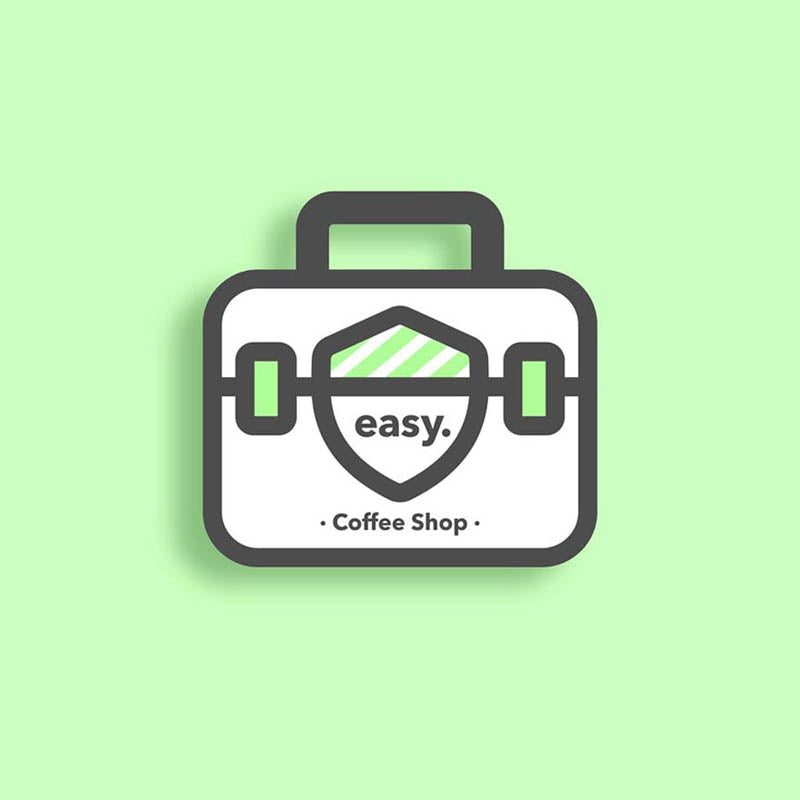
Keep your Coffee Shop business safe and compliant with our easy-to-use health and safety templates.
Simplify health and safety management in your coffee shop, coffee bar, or coffee chain with our industry-specific templates. Whether you’re running a busy high-street coffee shop, managing a relaxed coffee bar, or overseeing multiple outlets, our editable templates help you stay compliant with health and safety regulations while protecting baristas, staff, and customers from everyday hazards in fast-paced hospitality environments.
Many templates come pre-filled with detailed, industry-relevant content — from coffee shop risk assessments and fire safety forms to health and safety policies and staff safety guidance — making completion quick, accurate, and stress-free. With our ready-to-use tools, you can focus on serving great coffee, managing your business efficiently, and maintaining the highest standards of cleanliness, professionalism, and compliance.

Behind the Brew: Navigating Health and Safety in Your Coffee Shop
The ambience and aroma of coffee shops often overshadow an essential aspect that keeps these establishments running smoothly: a rigorous approach to health and safety. From safeguarding employees to meeting legal requirements, a coffee shop’s adherence to safety regulations is critical. This is why health and safety is non-negotiable in the coffee shop industry.
Employee Wellbeing: More Than Just a Duty
In a bustling environment filled with hot liquids, sharp objects, and electrical appliances, the wellbeing of staff is paramount. Providing suitable information and training (where necessary) on how to handle these hazards not only ensures the safety of employees but also contributes to an effective work setting.
Customer Safety: The Hallmark of Quality Service
Any coffee shop worth its beans must place customer safety at the forefront of its operations. This extends from serving hygienic food and drinks to maintaining a clean and hazard-free physical space. Ensuring customer safety is not just good practice; it's a necessity for sustained patronage.
Legal Requirements: Avoiding Penalties and Ensuring Compliance
Safety regulations are not merely guidelines but legal requirements that must be observed. Non-compliance can result in severe penalties, including substantial fines and even the closure of the business. Understanding and following the law is crucial for the long-term viability of a coffee shop.
Reputation Management: Safeguarding Your Brand
The consequences of neglecting health and safety measures can be catastrophic for a coffee shop’s reputation. In a digital age where news travels fast, a single mishap can quickly escalate into a PR crisis. Implementing robust safety measures is essential for brand protection and customer loyalty.
Proactive Measures: Training, Signage, and Gear
Being reactive when it comes to health and safety is a recipe for disaster. Proactive measures, including ongoing risk assessment reviews, staff training, clear signage, and the appropriate safety gear, are instrumental in mitigating risks. Regular inspections can also maintain high safety standards.
In Summary...
In the competitive landscape of the coffee shop industry, it’s easy to get lost in perfecting the brew or the ambiance. However, a steadfast focus on health and safety measures is what truly sets a quality establishment apart. A commitment to employee wellbeing, customer safety, legal compliance not only safeguards the business but enhances the coffee shop experience for everyone.
Top 3 Health and Safety Hazards in Coffee Shops:
-

Contact with Hot Liquids & Steam
View ProductsThese constitute a significant hazard, particularly for baristas who routinely prepare hot beverages. The risk of burns from spilled liquids, steam from espresso machines, or scalds from freshly boiled water is ever-present. Such injuries can be acute and severe, necessitating stringent safety procedures.
-
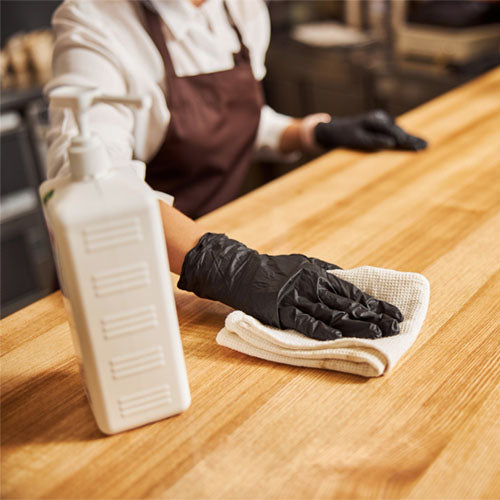
Cleanliness & Hygiene
View ProductsCleanliness and hygiene in coffee shops are vital to prevent the spread of germs and ensure customer safety, as they minimise the risk of food-borne illnesses. A clean environment also reflects the shop's commitment to quality and customer care, which is crucial for reputation and repeat business.
-

Customer Service
View ProductsCustomer service in coffee shops can lead to stress, confrontations, and occasionally physical risk from altercations or even robberies. Staff may need training in conflict resolution and support to handle high-pressure situations and difficult customers calmly, ensuring safety, well-being and good mental health for all.

Why pay expensive consultant fees when you can manage health and safety yourself?
Improve your compliance while saving time and money by creating health and safety documents, customised to your business, yourself. Our health and safety range for coffee shops covers a suite of essential templates including health and safety policies, risk assessments, COSHH forms, fire safety documents, health and safety guidance, safety posters and more.
Benefits of managing health and safety yourself...
-
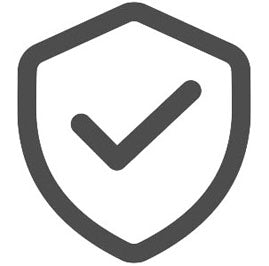
Improve safety
Health and safety at work is about preventing accidents, incidents and ill-health by assessing the work environment, the activities within it, and taking appropriate action.
-
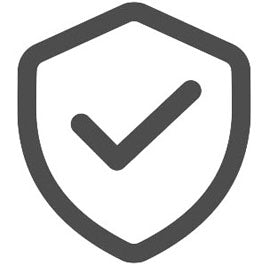
Ensure compliance
Our ready to use templates, many of which are pre-filled, will enable you to quickly increase your compliance to health and safety laws and regulations.
-
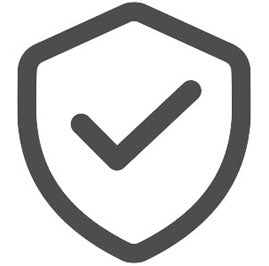
Save money
With health and safety consultants often charging upwards of £400 per day, there is a better way. Take control and save yourself time and money.

Time Well Spent: Investing in Coffee Shop Health & Safety
In the fast-paced environment of the coffee shop industry, time and financial resources often run on a tight budget. Balancing the day-to-day operational demands—such as inventory management, customer service, and quality control—with the essential task of health and safety compliance can prove to be a challenging juggle.
Many small to medium-sized coffee shop owners may feel overwhelmed or ill-equipped to allocate sufficient time and money towards fully implementing and maintaining comprehensive health and safety measures. The urgency to generate revenue and keep the business afloat can sometimes push these crucial concerns to the background, potentially leading to compromises that could have serious ramifications in the long term.
At easyhealthandsafety we aim to take the friction out of health and safety for coffee shop businesses by providing products and guidance so simple to use they are almost enjoyable.
Frequently Asked Questions
Coffee Shop Health and Safety FAQs
How can I create a risk assessment for my coffee shop business?
The easiest way to create a coffee shop risk assessment is to use a pre-filled, editable template designed for the coffee industry.
Writing a risk assessment from scratch can be time-consuming, especially when you’re unsure what hazards to include or how to phrase control measures. Our Coffee Shop Risk Assessment Template makes this simple. It’s professionally written and covers all key hazards found in coffee shops, including burns from hot liquids, slips and trips, electrical safety, manual handling, COSHH, and fire risks. You simply review the pre-filled sections, adapt them to your shop, and add any site-specific details to stay compliant and protect your team and customers.
For complete coverage, our Coffee Shop Health and Safety Template Bundle includes over 60 essential documents such as risk assessments, policies, COSHH assessments, fire safety forms, accident report templates, staff safety guidance, and more. It’s the all-in-one solution for managing compliance, reducing risk, and keeping your coffee shop safe and professional.
Do coffee shops need to complete a risk assessment?
Yes, every coffee shop must complete a health and safety risk assessment to identify potential hazards and ensure the safety of staff and customers.
While only businesses with five or more employees are legally required to have their risk assessment written down, it’s strongly recommended for all coffee shops to do so as best practice. A written record helps you manage risks such as burns from hot equipment, slips and trips, fire hazards, manual handling, and COSHH-related dangers from cleaning products. It also demonstrates due diligence to inspectors, insurers, and clients. Our editable Coffee Shop Risk Assessment Template is pre-filled with relevant content and is easy to customise, saving you time while ensuring full compliance.
To make health and safety management even easier, our Coffee Shop Health and Safety Template Bundle provides everything you need in one place — from risk assessments and policies to fire safety documents, COSHH templates, accident report forms, staff safety guidance, and more. It’s designed to simplify compliance and help you maintain a safe, well-managed environment for baristas, staff, and customers.
What should a coffee shop health and safety policy include?
A health and safety policy sets out your business’s commitment to keeping staff and customers safe and outlines how risks are managed day to day.
Your policy should include three key parts: a statement of intent (your overall safety commitment), roles and responsibilities (who manages what), and detailed arrangements for handling specific risks. For coffee shops, this means addressing areas such as hot equipment, food hygiene, COSHH cleaning products, accident procedures, fire safety, and staff training. Having a clear written policy not only demonstrates professionalism but also compliance with legal obligations.
Our Health and Safety Policy Template makes the process straightforward, with a clear one-page format and professionally pre-filled examples that make completion quick and effortless.
For a complete, all-in-one solution, our Coffee Shop Health and Safety Template Bundle includes over 60 essential documents — from policies and risk assessments to COSHH assessments, fire safety forms, accident report templates, staff safety guidance, and more. It provides everything you need to manage compliance efficiently, reduce risks, and maintain a safe, professional coffee shop environment.
What are the most common hazards in a coffee shop?
Coffee shops face a variety of everyday hazards, from burns and slips to fire risks and chemical exposure.
Common risks include hot water and steam from coffee machines, spilt drinks on floors, electrical faults, manual handling injuries, and improper storage or use of cleaning chemicals covered under COSHH regulations. Repetitive movements and long shifts can also lead to ergonomic issues for baristas. Identifying these hazards early helps prevent injuries and downtime.
Our Coffee Shop Health and Safety Template Bundle includes risk assessment templates, COSHH documents, fire safety forms, and accident logs to help you manage and control these risks effectively.
What fire safety measures should a coffee shop have in place?
Coffee shops must carry out a fire risk assessment and have clear fire safety procedures in place to protect staff and customers.
Fire risks can come from electrical faults, toasters, ovens, or coffee machines left unattended. Your premises should have working fire alarms, extinguishers suitable for electrical and grease fires, clear escape routes, and regular fire safety training for baristas and supervisors. Fire drills should be held at least annually, with findings recorded and reviewed.
Our Fire Risk Assessment Template guides you through the process of completing your fire risk assessment, making it easy to identify hazards, implement control measures, and maintain a safe, compliant workplace.
For a complete fire safety solution, our Essential Fire Safety Template Bundle includes a full suite of professionally written documents designed to help your coffee shop meet fire safety regulations with confidence.
How should coffee shops manage COSHH risks?
Coffee shops must assess and control exposure to hazardous substances under COSHH (Control of Substances Hazardous to Health).
Typical substances include cleaning sprays, degreasers, dishwasher detergents, and descaling agents that may be used for coffee machines. Each chemical should have a COSHH assessment detailing potential hazards, PPE requirements, safe storage, and disposal instructions. Staff should be trained on what to do in case of spills or exposure.
Our COSHH Risk Assessment Templates come pre-filled for common hazardous substances used in coffee shops, such as disinfectants, bleach, detergents, and hand sanitisers. A Blank COSHH Risk Assessment is also available, allowing you to easily easily record and assess any additional substances specific to your business.
What should coffee shop owners do to ensure food safety and hygiene compliance?
Food hygiene and allergen management are essential for every coffee shop serving food or beverages.
You must have clear procedures in place for food storage, temperature control, cross-contamination prevention, and allergen awareness. The Food Information Regulations 2014 require you to clearly display allergen information for any food or drink you serve, ensuring customers are fully informed before ordering. Staff should complete food hygiene training and maintain strict cleaning routines for work surfaces, fridges, and utensils. It’s also important to label allergens clearly — especially for ingredients like milk, nuts, and gluten — to protect customers and demonstrate due diligence.
Do coffee shop owners need to record accidents and near misses?
Yes — every coffee shop should keep detailed records of any accidents, injuries, or near misses that occur in the workplace. These should be recorded using an accident report form.
Accident reporting is a vital part of effective health and safety management. Keeping accurate records helps you identify patterns, prevent future incidents, and demonstrate that your coffee shop is managing safety responsibly. Serious injuries or incidents must be reported under RIDDOR (Reporting of Injuries, Diseases and Dangerous Occurrences Regulations). You should also document first aid treatments and near misses to support ongoing risk assessments and staff training.
Our Accident Report Form Template makes accident reporting straightforward, with a professional layout that helps you record incidents accurately, improve safety performance, and stay fully compliant.
For complete coverage, our Coffee Shop Health and Safety Template Bundle brings together over 60 essential documents — including your accident report form, risk assessments, policies, COSHH and fire safety templates, staff safety guidance, and more. It’s the ultimate all-in-one toolkit for simplifying compliance, minimising risks, and keeping your coffee shop safe, compliant, and well-managed.
How can coffee shop managers ensure staff are trained in health and safety?
Proper training is one of the most effective ways to reduce workplace accidents and ensure your coffee shop remains compliant.
Training should cover essential topics such as food hygiene, COSHH awareness, manual handling, fire safety, first aid, and accident reporting. Baristas, supervisors, and cleaning staff should receive health and safety training as part of their induction and at regular intervals thereafter. Keeping up-to-date training records helps you evidence compliance and maintain consistent safety standards across your team.
The Coffee Shop Health and Safety Template Bundle includes an editable health and safety induction form, and staff safety guidance, helping managers deliver and document effective training with ease.
How often should coffee shops review their health and safety documents?
Health and safety documents in your coffee shop should be reviewed at least once a year — or sooner if significant changes occur in your business.
Reviews should take place after any refurbishment, significant menu changes, new equipment installations, or operations that highlight new risks. Regular reviews ensure your procedures stay up to date, legally compliant, and relevant to daily operations. Keeping documents current also supports a positive safety culture among staff and helps avoid potential enforcement action.
Our Coffee Shop Health and Safety Template Bundle includes a suite of over 60 essential health and safety documents which are fully editable, making it quick and simple to update your risk assessments, policies, and other documents whenever your coffee shop evolves.
What insurance do I need to cover health and safety risks in my coffee shop?
Employers' Liability Insurance is mandatory if you have employees. You may also consider Public Liability Insurance to protect against claims from customers. Always consult with an insurance advisor to ensure you have the right level of coverage for your specific needs.
Ensure compliance across your business with our Coffee Shop Health and Safety Template Bundle, featuring a complete set of essential documents designed to help you meet health and safety requirements in your coffee shop.







